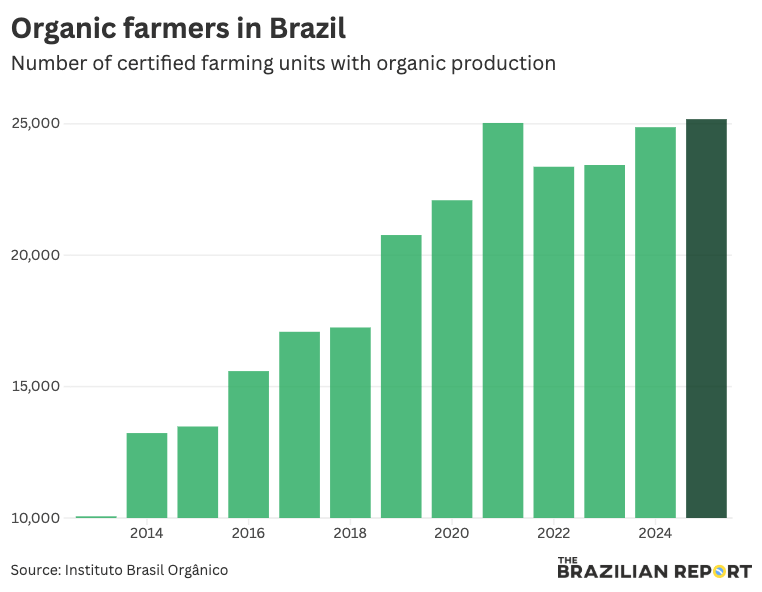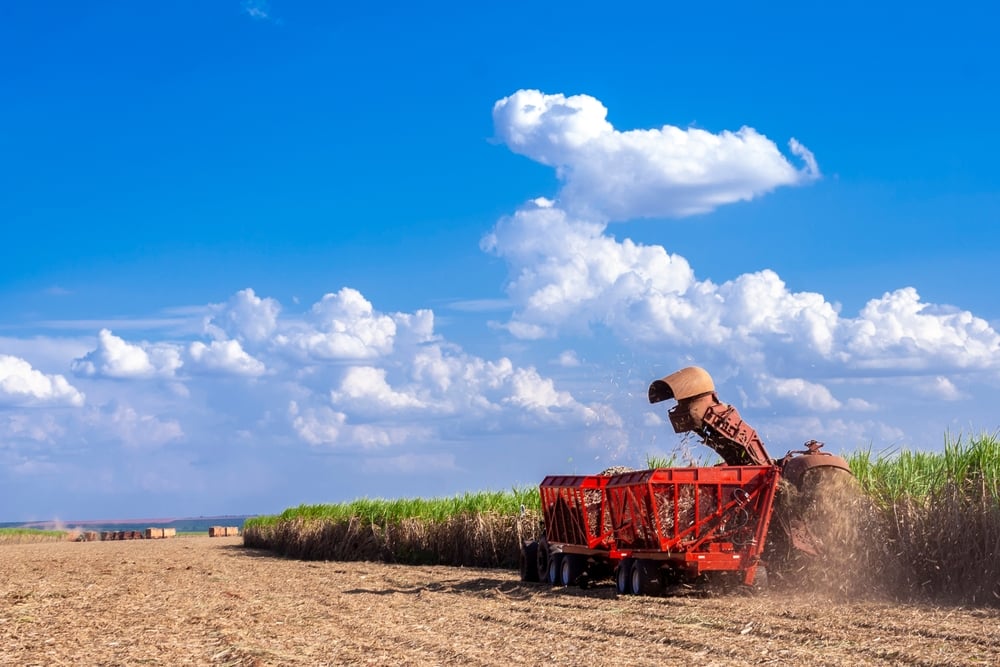FARMING
Organic farming in Brazil is small, but growing

Brazilian organic products such as sugar and honey have gained popularity overseas. Photo: MIA Studio/Shutterstock
Organic farming in Brazil has increased by 150% since 2013, but it still accounts for only a small share of the country’s vast agricultural sector.
A recent study by the Brazil Organic Institute, a nonprofit organization, shows that the number of farmers using certified organic methods increased from approximately 10,000 in 2013 to over 25,000 in 2025. The growth was driven by a combination of government policies promoting sustainable agriculture and increasing consumer concern over pesticide use and environmental degradation.

Brazil has regulated organic farming since 2003, establishing certification standards and a national label for organic products. To earn organic designation, products must be grown without pesticides, synthetic fertilizers or genetically modified organisms…

🔒 This was a free preview; the rest is behind our paywall
Don’t miss out! Upgrade to unlock full access. The process takes only seconds with Apple Pay or Stripe. Become a member.

Why you should subscribe
We’re here for readers who want to truly understand Brazil and Latin America — a region too often ignored or misrepresented by the international media.
Since 2017, our reporting has been powered by paid subscribers. They’re the reason we can keep a full-time team of 10 journalists across Brazil and Argentina, delivering sharp, independent coverage every day.
If you value our work, subscribing is the best way to keep it going — and growing.
Our annual plan goes for just USD 0.52 a day — but the value you'll get back from it is truly immeasurable. So… what’s stopping you from joining right now?








